2015 Women's Institute for Summer Enrichment
PROGRAM OVERVIEW
WISE is a one-week residential summer program at a TRUST campus that brings together graduate students, post-doctoral fellows, and professors from all disciplines that are interested in Ubiquitous Secure Technology and the social, political, and economical ramifications that are associated with this technology. Thought leaders from academia, industry, and government come to WISE to teach power courses in several disciplines, including computer science, engineering, economics, law, and public policy. The one-week program includes rigorous classes and allows participants opportunities for career development and to network with their peers.
The 2015 WISE Institute will be held June 14-18, 2015 on the University of California, Berkeley Campus. A copy of the agenda can be found here.
SPEAKERS 2015
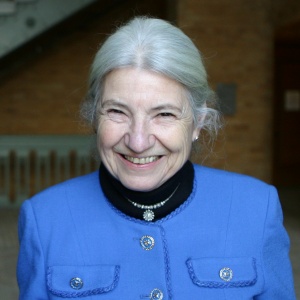
Ruzena Bajcsy
Campus Host
University of California, Berkeley
Ruzena Bajcsy is a Professor of Electrical Engineering and Computer Sciences at the University of California, Berkeley, and Director Emeritus of the Center for Information Technology Research in the Interest of Science (CITRIS). Her current research areas include artificial intelligence; biosystems and computational biology; control, intelligent systems, and robotics; graphics and human-computer interaction, computer vision; and security. Prior to coming to Berkeley, she was Assistant Director of the Computer Information Science and Engineering Directorate (CISE) of National Science Foundation. Ruzena is a pioneering researcher in machine perception, robotics and artificial intelligence. She was Director of the University of Pennsylvania's General Robotics and Active Sensory Perception Laboratory, which she founded in 1978. Dr. Bajcsy has done seminal research in the areas of human-centered computer control, cognitive science, robotics, computerized radiological/medical image processing and artificial vision. She is a member of the National Academy of Engineering, as well as the Institute of Medicine.
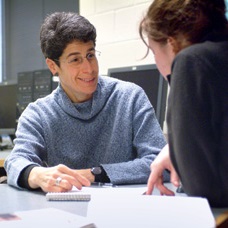
Valerie Barr
Union College
Valerie Barr is a Professor of Computer Science at Union College. Dr. Barr spent 2013-2014 on temporary assignment to the National Science Foundation, serving as a program director in the Division of Undergraduate Education. Before joining Union College, Professor Barr was on the faculty at Hofstra University. During her graduate studies she taught at Pratt Institute, Rutgers University, Mount Holyoke College, and Polytechnic University. Professor Barr has a Masters degree from New York University and Ph.D. from Rutgers University.

Chutima Boonthum-Denecke
Hampton University
Chutima Boonthum-Denecke is an Associate Professor in the Department of Computer Science, School of Science, at Hampton University. Dr. Boonthum-Denecke is also a faculty member of the Hampton University Information Assurance group. She has been involved in several NSF-funded Broadening Participation in Computing (BPC) programs: ARTSI (Advancing Robotics Technology for Societal Impact) and STARS (Students and Technology in Academia, Research and Service) Alliances. Her research interests are artificial intelligence (Natural Language Processing, Computational Linguistics), information retrieval, web development technology, and cognitive robotics.
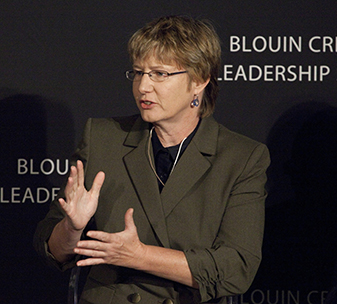
L. Jean Camp
Indiana University
L. Jean Camp is a Professor at the School of Informatics, Adjunct Professor of Telecommunications, and an Adjunct Professor of Computer Science at Indiana University. Professor Camp's core interest is technical trust mechanisms in economic and social context. It was this interest that led Prof. Camp from graduate electrical engineering research in North Carolina to the Department of Engineering and Public Policy at Carnegie Mellon, and it remained her core interests as a Senior Member of the Technical Staff at Sandia National Laboratories. At Sandia National Laboratories her work focused on computer security. She left Sandia National Laboratories for eight years at Harvard's Kennedy School. Now as a tenured Professor at Indiana Unviersity's School of Informatics her research addresses security in society.

Rob D'Ovidio
Drexel University
Rob D'Ovidio is an Assistant Professor at Drexel University, where he teaches for the Criminal Justice Program and directs Drexel’s research program in computer crime and digital forensics. His research and teaching interests lie in the intersection of computer technology, crime, and the criminal justice system. In the past, Rob has worked with the New York City Police Department and Philadelphia Police Department on research projects involving computer crime. His work with the law enforcement community also includes training investigators on techniques to trace Internet communication and seize electronic evidence and cell phones. Rob is a a member of the International Association of Computer Investigative Specialists, the American Society of Criminology, and the United States Secret Service Philadelphia- Area Electronic Crimes Task Force. Dr. D’Ovidio sits on the National Governors Association’s Strategic Policy Council on Cyber and Electronic Crime.
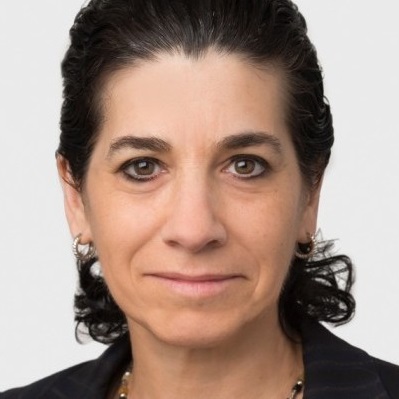
Deborah Estrin
Cornell University
Deborah Estrin is a Professor of Computer Science at Cornell Tech in New York City and a Professor of Public Health at Weill Cornell Medical College. She is founder of the Healthier Life Hub and directs the Small Data Lab at Cornell Tech, which develops new personal data APIs and applications for individuals to harvest the small data traces they generate daily. Estrin is also co-founder of the non-profit startup, Open mHealth. Previously, Estrin was on the UCLA faculty where she was the Founding Director of the NSF Center for Embedded Networked Sensing (CENS), pioneering the development of mobile and wireless systems to collect and analyze real time data about the physical world and the people who occupy it.
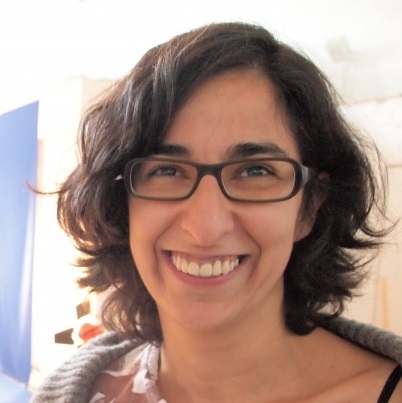
Seda Gürses
Seda Gürses is a Post-doctoral research fellow in the Media, Culture and Communications Department and at the Information Law Institute at New York University working on privacy, security, surveillance studies and requirements engineering. Recently, she has been empirically studying and critically reflecting on the assumptions and methods that inform prominent strands of privacy research within computer science. Previously Seda was a post-doctoral researcher at COSIC (Computer Security and Industrial Cryptography) in the Department of Electrical Engineering of the KU Leuven, Belgium working together with Claudia Diaz, Bart Preneel and Bettina Berendt and was in charge of an interdisciplinary project on Security and Privacy in Online Social Networks (SPION http://www.spion.me). Seda received her PhD at the Department of Computer Science of the KU Leuven and her Master’s degree in Informatics at the Humboldt University, Berlin in Germany.

Shuyuan Ho
Florida State University
Shuyuan Ho is an Associate Professor at Florida State uNiversity. Dr. Ho's research focuses on trusted human-computer interactions, specifically addressing issues of cyber insider threats and online deception. Shuyuan’s theory of trustworthiness attribution integrates social psychologies on trust and attribution, for insider threat detection as supported by cyber infrastructure. Shuyuan further develops the framework for a dyadic attribution model to assess human trustworthiness in sophisticated online communication environments. Dr. Ho designs online games as an experiment protocol for investigating human deception and betrayal in virtual organizations. Her sociotechnical research approach utilizes social-psychological theories along with pragmatic viewpoints on language cues to create an innovative methodology for computational modeling of next generation behavioral inference systems based on language-action features in complex trust relationships, human disposition and intent detection.

Raquell Holmes
improvscience
Raquell Holmes is the founder of improvscience. Trained formally as a cell biologist, Holmes brings her training from the East Side Institute in using improvisational theater and performance to build collaborative learning environments to business, schools and researchers throughout the country. Her interdisciplinary research and educational efforts in the computational sciences make use of modeling, simulation and visualization tools. Through improvscience, Dr. Holmes brings the cultural and performatory approaches of social therapy to developing creative scientific learning communities, organizations and research groups.

Bradley Malin
Vanderbilt University
Bradley Malin is an Associate Professor and the Vice Chair for Research in the Department of Biomedical Informatics and Computer Science at Vanderbilt University, where he founded and currently directs the Vanderbilt Health Information Privacy Laboratory. He is an internationally recognized expert on data privacy and has served on national advisory committees for the Institute of Medicine at the National Academy of Sciences regarding the management of data from electronic medical record systems and biorepositories. He has consulted on de-identification solutions for numerous industrial, not-for-profit, and government agencies. He received a bachelor’s in biological sciences, master’s in public policy and management, and doctorate in computer science, all from Carnegie Mellon University.

Ilene Moore
The Permanente Federation
Ilene Moore is the General Counsel of The Permanente Federation. In this role, she leads the legal functions of the Federation, Permanente Advantage, and the Permanente Foundation. She provides the Federation and Permanente Medical Group senior leadership with legal and strategic advice on short and long-term programs, manages day-to-day legal functions, and obtains and oversees the work of outside counsel. She has also recently been appointed as the accountable executive for Human Resources at the Federation. Prior to joining The Permanente Federation in August 2012, Moore served as the General Counsel for the Colorado Permanente Medical Group for two years. Before joining Kaiser Permanente, she served in the Office of the Colorado Attorney General for more than eight years, most recently as First Assistant Attorney General for Medical Unit, Business and Licensing Section.
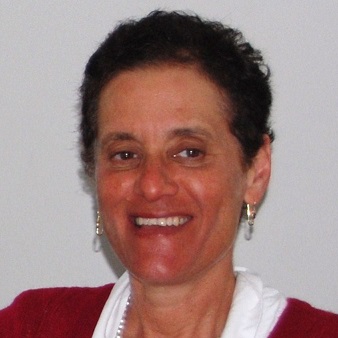
Helen Nissenbaum
New York University
Helen Nissenbaum is Professor of Media, Culture and Communication, and Computer Science, at New York University, where she is also Director of the Information Law Institute. Her work spans social, ethical, and political dimensions of information technology and digital media. She has written and edited seven books, including Values at Play in Digital Games, and Privacy in Context: Technology, Policy, and the Integrity of Social Life and her research publications have appeared in journals of philosophy, politics, law, media studies, information studies, and computer science. Dr. Nissenbaum's research interests include privacy, trust online, security, as well as several the values embodied in computer system design, search engines, digital games, facial recognition technology, and health information systems.

Amelia Phillips
Highline College
Forthcoming.
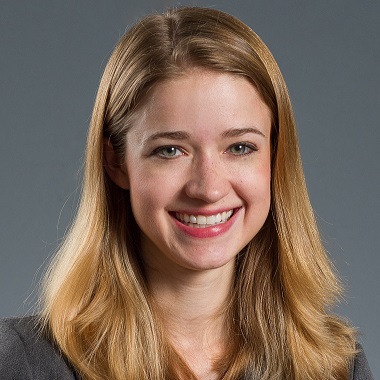
Elaine Sedenberg
University of California, Berkeley
Elaine Sedenberg is currently a Ph.D. student at the University of California, Berkeley School of Information, where she is a National Science Foundation (NSF) Graduate Research Fellow and a Berkeley Graduate Fellow. Her current research focuses on the legal, ethical, and policy aspects of information sharing and data access for research purposes. Previously, Elaine was a Science Policy Fellow at the Science and Technology Policy Institute (STPI) in Washington D.C., which is a Federally Funded Research and Development Center that supports the White House Office of Science and Technology Policy (OSTP), as well as the NSF and other agencies. She currently serves as Editor-in-Chief of the open access, student-run Journal of Science Policy and Governance (JSPG). Elaine has also served as a consultant for Center for American Progress' online science publication, Science Progress, and completed a Tisdale Fellowship in technology policy.

Li Xiong
Emory University
Li Xiong is an Associate Professor in the Department of Mathematics and Computer Science and the Department of Biomedical Informatics at Emory University where she directs the Assured Information Management and Sharing (AIMS) research group. She holds a PhD from Georgia Institute of Technology, an MS from Johns Hopkins University, and a BS from University of Science and Technology of China, all in Computer Science. She also worked as a software engineer in IT industry for several years prior to pursuing her doctorate. Her areas of research are in data privacy and security, distributed and spatio-temporal data management, and health informatics. She is a recent recipient of the Career Enhancement Fellowship by Woodrow Wilson Foundation, a Cisco Research Award, and an IBM Faculty Innovation Award. Her current research is supported by NSF, AFOSR, and PCORI.



